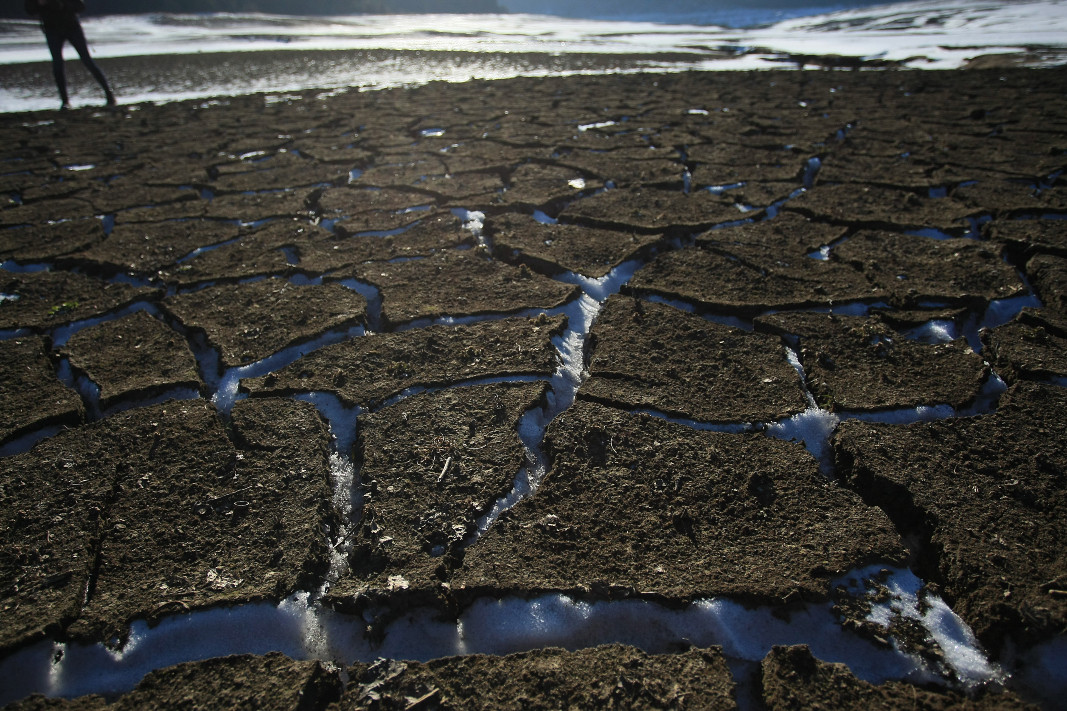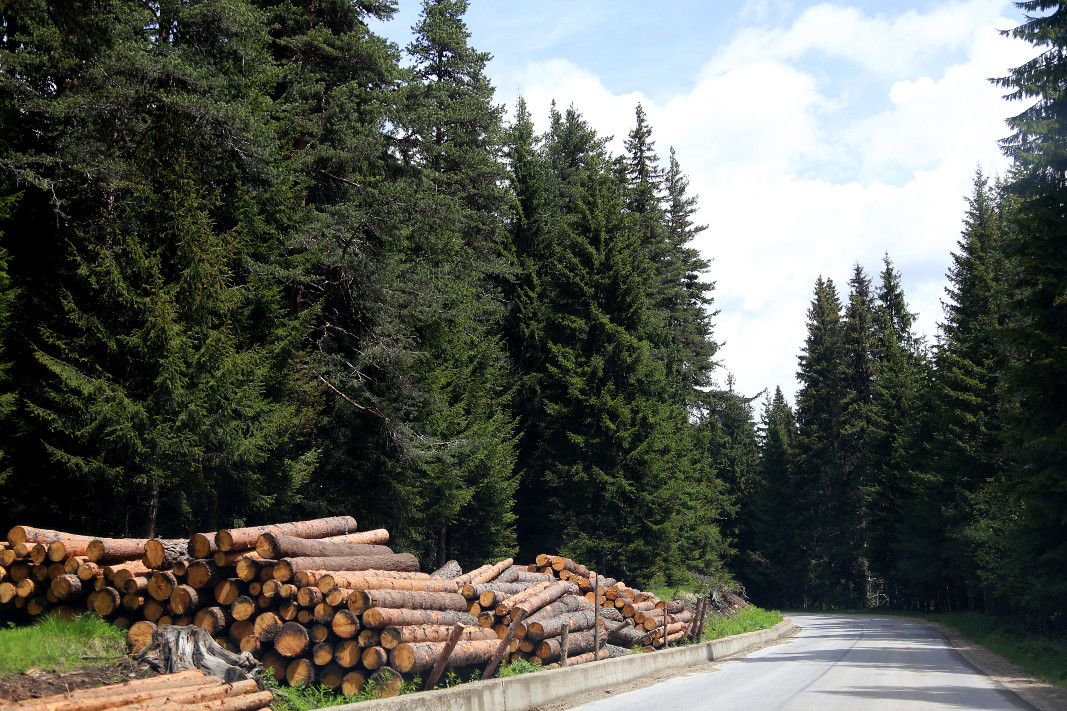Bulgaria's mild weather and lack of snow this winter raise the worrying question of climate change and how people can intervene to save this seemingly irreversible process. Moreover, the 15 warmest years on the planet have been recorded in the last two decades, according to WWF. The last eight years are the eight warmest on record.
Climatologists in this country are recording longer periods of drought followed by storms and floods that bring death and destruction. South of the Balkan Mountains, the climate is gradually turning Mediterranean, while in the north the fertile lands are slowly becoming desertified. Snow, which usually falls here as early as the end of November, now comes only after Christmas, and the amount of water available during the year is decreasing. Is global warming really already a fact?
Is global warming really already a fact?
"Statistically speaking, we are seeing an increase in average temperatures, but this is a trend that is characteristic of the whole world," says climatologist Hristo Popov, a chief assistant professor at the Sofia University "St. Kliment Ohridski".– However, the degree of change varies by region - in some places, such as Siberia, temperatures are rising significantly faster, while in other areas around the equator they are going down. Over the last century, there have been several periods of warmer temperatures in the northern hemisphere, followed by a cooling between 1961 and 1990. We are now living in a climate that is characterised by higher average temperatures compared to the previous stage."
Lately, the country has been swinging between various extremes of weather - including scant snow cover in the dead of winter, as it is now in the mountains. The climatologist confirms that the weather is indeed a bit warmer than normal at the moment, but assures us that by the end of this month we will feel the winter chill. And as for the other weather anomalies: "This is partly related to climate change," continues Hristo Popov, "But in fact, similar alternations of droughts with flash floods and torrential rains have been recorded in the last hundred years - for example, in the period 1931-1960, and in the earlier period between 1928 and 1930.
So in terms of our time period, this is not that atypical. Rather, the climate system is returning to the way it functioned in an earlier period, which is long gone and many people no longer remember. "But despite the reassuring parallels with past periods, the climatologist is convinced that warming will continue over the next hundred years.
"But despite the reassuring parallels with past periods, the climatologist is convinced that warming will continue over the next hundred years.
Forests will be among the ecosystems most affected by climate change, says Assoc. Prof. PhD Momchil Panayotov of the University of Forestry, Sofia.
"Bulgaria is a country in southern Europe and according to climate models we can expect some pretty nasty developments here - more frequent droughts, heat waves in summer, changes in rainfall patterns, a general rise in temperatures," he adds. - All this will have a very serious impact, especially on natural ecosystems, and cases like what happened in the southern foothills of the Balkan (flooding in the villages of Karlovo last September - ed.) are expected to increase. So such extreme weather events can also have an unpleasant impact on our way of life."
A large part of our territory consists of forest ecosystems - for example, the area below Vidin, as well as around the Balkan Mountains and the Rhodope Mountains, where people depend entirely on the woods for their livelihoods. Therefore, according to the expert, it is logical that these ecosystems suffer the most.
"Agriculture is yet another sector which will be seriously affected," Momchil Panayotov points out. - However, there are countermeasures - e.g. through irrigation, crop changes to achieve faster adaptation. But forest adaptation is very slow, because forests are long-lived systems and the species composition of trees cannot change from today to tomorrow. So the outlook for some tree species is poor and that is a concern." Yet can we do anything? Well, it turns out that yes, there is a lot to do: conservation of old forests and reduction of logging in them, good planning of forest activities, reforestation of new forests... And although Bulgaria is located in one of the driest regions in Europe and is threatened by prolonged droughts, Hristo Popov sees opportunities in changing climatic conditions. In his view, a warming climate can be seen as a chance to grow crops that like the heat.
Yet can we do anything? Well, it turns out that yes, there is a lot to do: conservation of old forests and reduction of logging in them, good planning of forest activities, reforestation of new forests... And although Bulgaria is located in one of the driest regions in Europe and is threatened by prolonged droughts, Hristo Popov sees opportunities in changing climatic conditions. In his view, a warming climate can be seen as a chance to grow crops that like the heat.
In addition, it can be a good occasion to take measures to conserve and make full use of water resources and to reduce carbon emissions if we want to make a qualitative change in our living environment.
Text by Diana Tsankova (based on interviews by Chavdar Zlatev, BNR-Stara Zagora and Yordanka Petrova, BNR-Vidin)
Photos: BGNESThe Rhodope Mountain is pure magic to anyone who has ever laid eyes on the its scenic views or has ever heard any of the legends about it. August 4-10 is a good time to plan a visit to the Western Rhodopes, and more specifically the region of Ardino..
The Ministry of Tourism is once again organizing Bulgaria’s presentation at the World Travel Market in London. At the 45 th edition of the event, November 4-6, 2025, Bulgaria will be presented at a pavilion covering a record area – 399 sq. m...
It is exactly 100 years this year since the Mount Rila celebrations took place for the first time. Rila is the mountain where some of the longest and fullest rivers on the Balkan peninsula originate – Maritsa, Iskar and Mesta. There are more than 120..
Between 12 and 13 August, the skies over Bulgaria will put on one of the most spectacular natural displays: the peak of the Perseid meteor shower. Dozens..
Two young Bulgarian inventors have developed a solution for a job few want to do . Gregory-Leon Faurie, born in Qatar, and Martin Georgiev from..
We are in the middle of Bulgaria’s summer tourist season, when the Black Sea coast — though not only there — is full of visitors from home and abroad...

+359 2 9336 661
